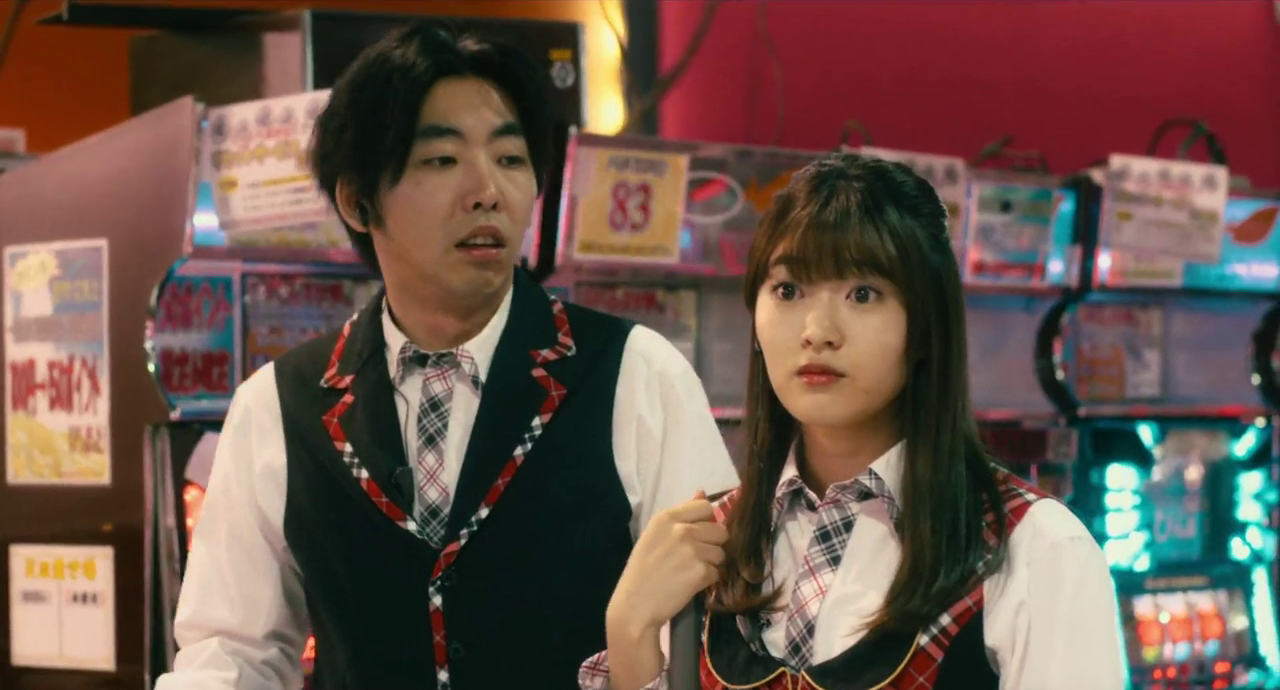Introduction
Keisuke Yoshida, whom spectators may know from recent films like Himeanole (2016) or Come On Irene (2018), is not really a well-known director. Yet, Yoshida is not simply a director-for-hire, filming whatever script they throw at him. For most of his projects, he functions both as the screenwriter and the director. This same is true for his own take on the boxing-film.
Review
Boxer Nobuto Urita (Kenichi Matsuyama) has been on a losing streak for a while now, but his love for boxing keeps him going. Kazuki Ogawa (Masahiro Higashide), for that matter, has the talent and the skill to win the Japan championship. Yet, Kazuki’s focus on boxing championships as well as his forgetfulness is putting his relationship with Chika Amano (Fumino Kimura), Nobuto’s first love, under pressure. Chika is worried that the many punches is messing up his brain.
Tsuyoshi Narasaki (Tokio Emoto) has been romantically interested in his co-worker Tae (Ayuri Yoshinaga) for a long time. While he would rather avoid stressful situations, the mere presence of a more handsome co-worker compels him to prove his worth to her. One day, after been beaten by a junior high schooler, Tae reasons that Narasaki did not fight back because he is, in fact, a boxer. Narasaki readily accepts this explanation to hide his own fear of fighting. Having deceived the girl he’s in love with, he sees no other option than start boxing.
Blue is a narrative that explores the different ways men deal with the (phallic) lack. Narazaki, for instance, is fully aware that the man a woman may desire. Kazuki struggles to accept the physical signs of decline that boxing have caused and Nobuto, who deeply loves boxing, is continuously confronted with his lack of talent.
Narazaki, who is in love with Tae, desperately desires her to perceive his phallic shine, a manly worth that will entice her to become his. Yet, his attempts to reveal his ‘manliness’ – I can protect you! – to her are always sabotaged by his subjective fear of conflict and fighting. In this sense, Blue beautifully reveals that the “phallic shine” that Narazaki is trying to show to Tae has no real substance; it is merely an enacted imaginary fiction to try to entrap the desire of the other.
By accepting Tae’s assumption that he is a “boxer”, he puts himself in a precarious position – if his lie were exposed, he would reveal himself as a mere phallic imposter (Psycho-note 1). The only thing Narazaki can do to ensure he has a chance with her is to turn his lie into the truth. Can he impress his love interest (with his phallic ‘quality’) and silence his suspicious co-worker by merely pretending to be a boxer? Can his boxing training become a transformative experience for him, an experience that allows him to rewrite his anxious subjective logic and be the ‘man’ he wants to be?
Kazuki, despite the health risks he runs by further pursing his boxing career, has no intention to quit. His promise to retire if he loses a boxing bout is, in this respect, merely a whimsical speech-act to silence Chika and calm the conflict between them. In any case, even though his promise was impulsive, his ability to vocalize it nevertheless underlines that he, deep down, wants to feel ‘invincible’. Yet, Kazuki’s clutching to the fantasy of phallic invincibility is merely a way to escape the confrontation with the very effects of his brain damage.
Yet, such cycle is destructive as every confrontation compels him to push himself more and more, to fight more and more. Such cycle, as the spectator can easily assume, can only be broken if Kazuki succeeds in accepting the truth of his real lack, the reality of his cerebral decay. Can Chika, who desperately desires him to quit, allow him to escape this cycle? Or will something more drastically, like a loss, be truly necessary for him to come to terms with his painful truth?
Loser Nobuto Urita is seemingly unable to leave boxing behind. Is his inability to quit function of his subjective difficulty to accept his lack (of talent)? What is the function of his ‘technique’ to undo the weight of the truth of his lack? He might not chase the sound of the championship gong to escape his reality like Kazuki does, but he nevertheless tries to ease the conscious weight of his reality, a reality that he is continuously confronted with, by joking about it. Yet, does this need to joke about his ‘lack’ to others and add a farcical flavour to his failures betray the presence of irresolvable subjective unrest or a peaceful reconciliation with the implications of his lack for his own future?
The composition of Blue – a mix of between static and dynamic moments – is characterized by a subtle form of shaky framing. Such shakiness does not only give Yoshida’s a certain visual consistency, but also gives a feel of realism to the fictional narrative.
The boxing-sequences benefit greatly from this shakiness. Not only do the variety of punches attain a pleasing crudeness due to this raw framing, but the blend of such shakiness with a livelier dynamism enables the rhymical flow of boxing to attain a pleasing tension that engages the spectator.
Blue might not have the epical proportions of Underdog part 1 and part 2, but Yoshida still succeeds in hitting all the beats of the boxing genre and delivering, surprisingly, a very emotional journey about the difficulties of dealing with loss and lack. Even if you’re not a fan of boxing, Blue is worth checking out.
Notes
Psycho-note 1: All men are, up until a certain point, phallic impostures.





One Comment Add yours